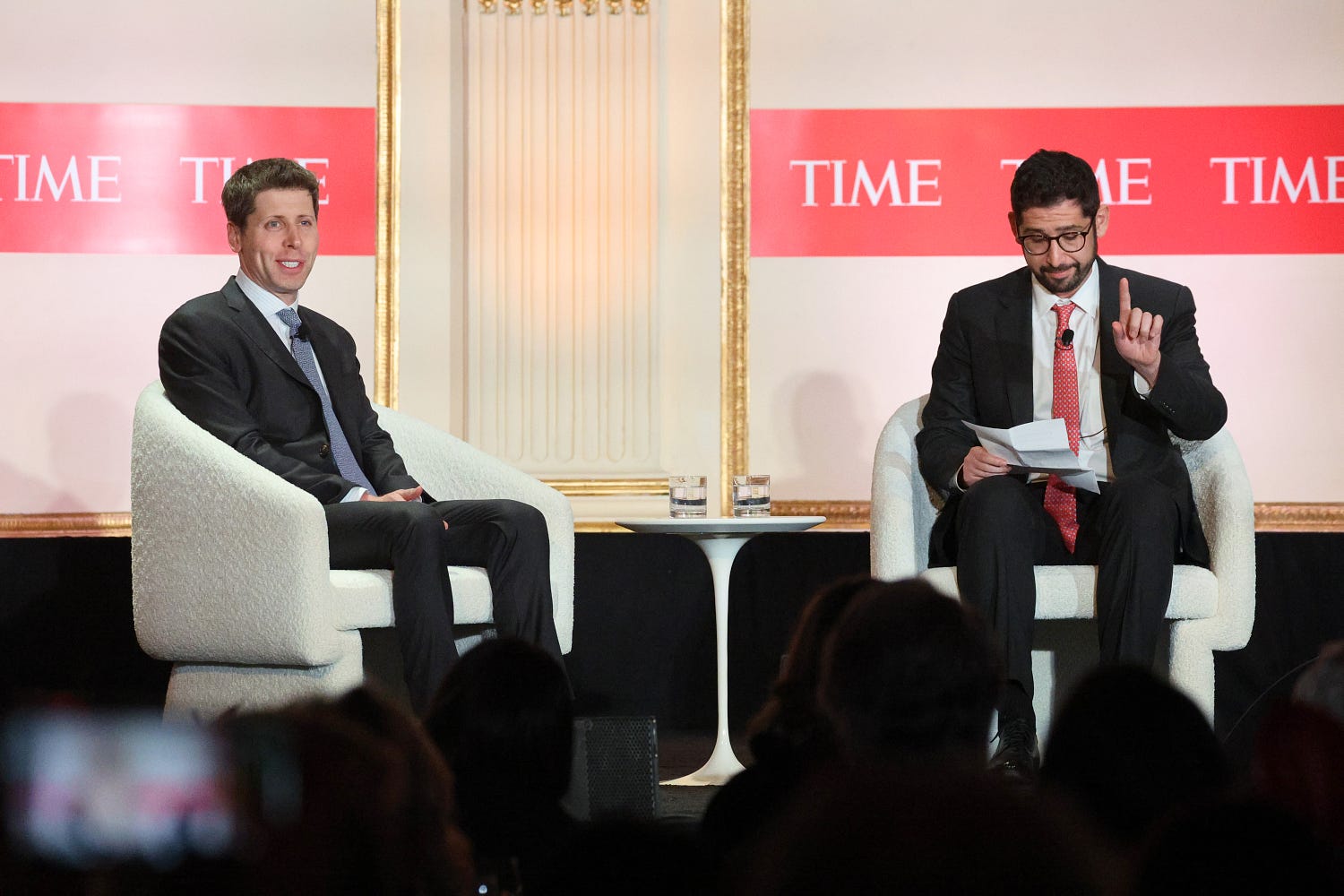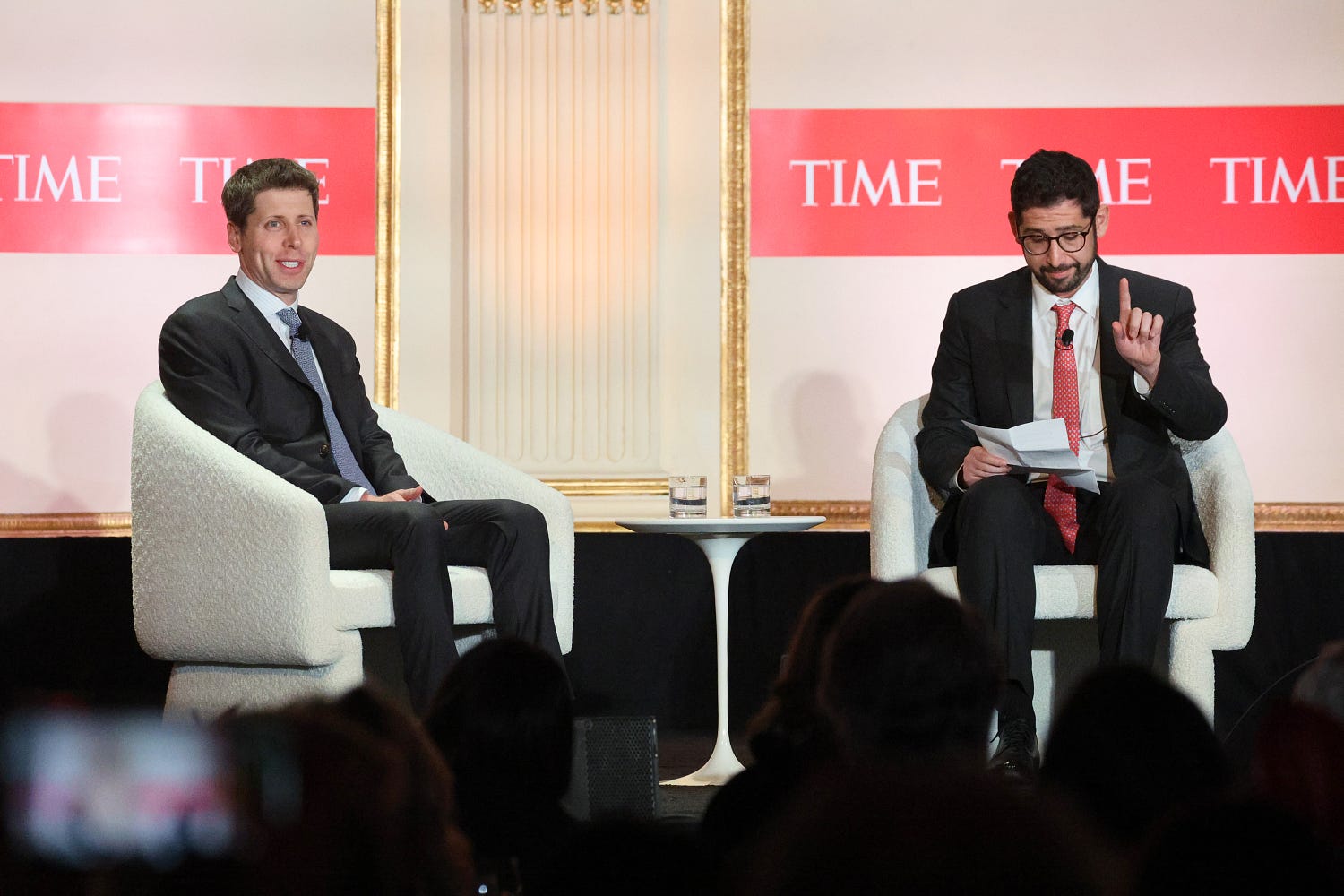the health strategist
institute, portal & consulting
for workforce health & economic prosperity
Joaquim Cardoso MSc.
Servant Leader, Chief Research & Strategy Officer (CRSO),
Editor in Chief and Senior Advisor
January 7, 2024
This is an Executive Summary of the article “OpenAI Sam Altman, left, in conversation with TIME Editor-in-Chief Sam Jacobs, right. Mike Coppola — Getty Images for TIME”, published by TIME.
The central message of the article revolves around the transformative potential of AI and the importance of responsible development.
Altman highlights the necessity of unity within companies developing AGI, the significance of democratizing access to powerful technologies, and the challenges posed by AI’s persuasive capabilities and potential for disinformation.
Despite acknowledging the downsides and risks, he remains optimistic about AI’s ability to empower individuals and improve the world in numerous ways.
Despite acknowledging the downsides and risks, he remains optimistic about AI’s ability to empower individuals and improve the world in numerous ways.

Sam Altman, the CEO of OpenAI, engaged in a comprehensive conversation with TIME’s Editor-in-Chief, Sam Jacobs, reflecting on the tumultuous events of 2023, his removal and reinstatement at OpenAI, and the broader implications of artificial intelligence (AI) in today’s society. Altman discussed the company’s rapid evolution from a research lab to a recognized tech firm, emphasizing the impact of recent challenges on OpenAI’s unity and focus.
Expressing the intense stress surrounding AGI (artificial general intelligence) development, Altman highlighted the critical role of strong team development and mentorship for CEOs. Despite personal upheaval, he noted the strength of OpenAI’s executive team and its capacity to lead the company without his direct involvement, signaling optimism for the future.
Addressing concerns about OpenAI’s governance and trustworthiness, Altman acknowledged the need for improvements and emphasized the company’s dedication to democratic AGI access. He debunked Elon Musk’s criticism, asserting OpenAI’s commitment to open-source initiatives and rejecting claims of Microsoft’s control.
Altman welcomed competition in AI advancements, citing Google’s Gemini model as a positive development. He candidly discussed the challenges faced as a Jewish leader, reflecting on the increase in antisemitic sentiments and recognizing his initial underestimation of the issue’s significance.
Regarding AI’s impact on disinformation and media, Altman raised concerns about AI’s persuasive potential and its ability to customize messages, potentially influencing individuals’ beliefs. He acknowledged the uncertainty surrounding AI’s effects on the media landscape but expressed optimism about its net positive impact.
He outlined OpenAI’s mission to create responsible AI tools, empowering individuals across various fields to architect the future.
Altman envisioned a world where abundant AI and energy would revolutionize education, healthcare, productivity, and innovation, albeit with necessary precautions for safety and responsibility.
Altman envisioned a world where abundant AI and energy would revolutionize education, healthcare, productivity, and innovation, albeit with necessary precautions for safety and responsibility.












